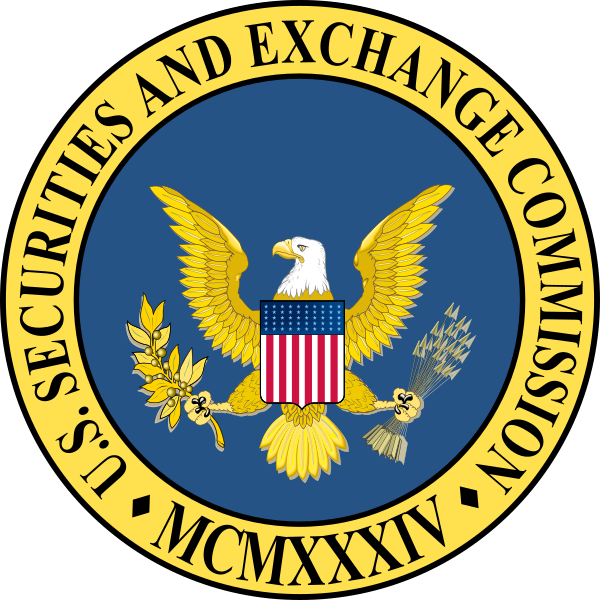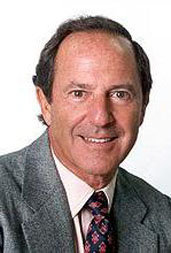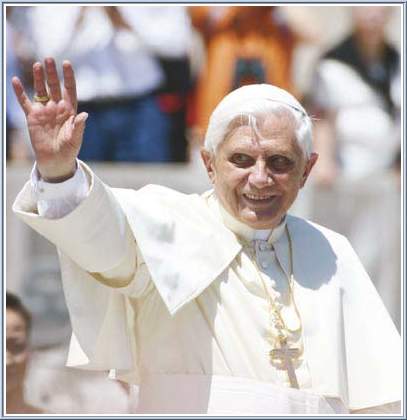HSBC "has emerged as one the largest victims of Bernard Madoff’s alleged fraud with potential exposure of about $1bn...HSBC’s exposure stemmed from loans it provided to institutional clients, mainly hedge funds of funds, that wanted to invest with Mr Madoff. HSBC’s direct exposure is believed to be about $1bn in loans provided to clients who invested some $500m of their own funds in Mr Madoff’s venture. Under the typical terms of these deals, if the US authorities recover any funds from Mr Madoff, HSBC will be paid first, with its clients suffering the first tranche of losses." (FT:)
Access International. $1.4 billion
Fortis Bank. $1.4 billion
Man Group’s RMF division has about $350m invested in funds which outsourced their management to Madoff securities, although this is a tiny fraction of the division’s $25bn of assets. (FT)
Tremont Capital. Fund of funds. $3.3 billion invested. (FT)
Pioneer Investments, an arm of Italy’s UniCredit, had “substantially all” of $835m invested with Madoff. (FT)
Union Bancaire Privet: $1.1 billion
Benbasset & Cie: $935 million
BBVA: $404 million
Maxam Capital Management LLC. Combined loss of $280 million. "I'm wiped out," said Sandra Manzke, Maxam's founder and chairman. The Darien, Conn., fund of hedge funds will have to close as a result of the losses, she said. (WSJ)
Fairfield Greenwich Group. Bloomberg: The biggest loser may be Walter Noel’s Fairfield Greenwich Group, whose $7.3 billion Fairfield Sentry Ltd. invested with Madoff’s eponymous firm, three people familiar with the matter said... Fairfield Sentry has a record of more than 15 years with an annual return of 4 to 6 percentage points above benchmark interest rates, according to a marketing document dated this month that was prepared by Zurich-based NPB New Private Bank Ltd. On an absolute basis, returns exceeded 10 percent every year from 1991 through 2000. Since then, they ranged from 6.4 percent to 9.8 percent...The strategy is a “split-strike conversion,” where the investment manager buys shares of large U.S. companies and enters into options contracts to limit the risk, the document says.
Fix Asset Management. Bloomberg: Fix Asset Management, which had an account worth at least $400 million with Madoff Investments. The firm said it’s checking with lawyers about the holdings. “We are very shocked,” John Fix, the son of founder Charles Fix, said by phone from Greece. “We put in redemptions in the past few months and got our money back no problem. We are just so surprised about all this.”
Kingate Management Ltd. Bloomberg says $2.8 billion Kingate Global Fund Ltd. invested with Madoff.
Santander. WSJ: The eurozone's largest bank by market value, said its clients had an exposure of €2.33 billion ($3.1 billion) to Madoff's investment funds, mainly through its Optimal Strategic US Equity fund. More than €2 billion belongs to institutional investors and international clients of its private-banking business, which provides services to wealthy individuals, it said. The remaining €320 million belongs to private-banking customers in Spain, where Santander is based.
Thyssen Family. Source sends the following: Thybo Investments grew out of a family office for Thyssen. They have been in fund of funds it seems since 1989. Thybo International is a "proper" fund of fund but it's newer share class G invests only in one manager - and i'm 99% sure it's Madoff as the returns are almost the same. Some more info. The fund started in Jan 2007. Ernst & Young. Luxembourg are the auditors. UBS Luxembourg is the administrator. Thybo states on their webpage: "Our track record incorporates audited financial statements at both a composite firm-wide and individual portfolios level."
Ira Roth's family. WSJ: Ira Roth, a New Jersey resident, who says his family has about $1 million invested through Mr. Madoff's firm, is "in a state of panic." He said his 86-year-old mother-in-law has been living on the investments' returns, and he has been using the funds to pay college tuition.
Sterling Equities. Fund controlled by Fred Wilpon, co-owner of the NY Mets, confirms it had money with Madoff.
Stephen Abbott, a San Francisco lawyer. WSJ: [Abbott] and two siblings had several hundred thousand dollars invested with Mr. Madoff. They inherited the trust from their father, who had befriended Mr. Madoff years ago. Performance remained steady through the current bear market, he said. "People were floored," he says. "We were making money in this lousy market." He says he is concerned about recovering the money but "you have to get philosophical about this stuff. It could be worse; we still have our health."
Palm Beach Country Club. Source: CNBC's David Faber
Lawrence Velvel, "69, dean of the Massachusetts School of Law, said he and a friend may have lost millions of dollars between them (AP). "This is a major disaster for a lot of people," Velvel said in a telephone interview from his Andover, Mass., office. "You work all your life, you finally manage to save up something, and somebody who's entrusted with it, it turns out suddenly he's a crook. Lots of people are getting fully or partially wiped out." Velvel said he wants to know where government regulators, as well as accountants and others at Madoff's company, were when the money was being lost." (AP)
Loeb Family. Source: CNBC's David Faber
J. Ezra Merkin. GMAC LLC Chairman. WSJ: Mr. Merkin, the chairman of former General Motors Corp. financing arm GMAC, is also a money manager at Ascot Partners LLC in New York. Ascot, which had $1.8 billion under management as of Sept. 30, had substantially all of its assets invested with Mr. Madoff, according to a letter to Mr. Merkin sent to clients Thursday night. Mr. Merkin said as one of the largest investors in Ascot, he believed he had personally "suffered major losses from this catastrophe."
Norman Braman. Former Philadelphia Eagles owner
Leonard Feinstein, co-founder of retailer Bed Bath & Beyond. (WSJ)
Mort Zuckerman. Mr. Zuckerman, the chairman of real-estate firm Boston Properties and owner of the New York Daily News and U.S. News & World Report, had significant exposure through a fund that invested substantially all of its assets with Mr. Madoff (WSJ)
Richard Spring. WSJ: A Boca Raton resident and former securities analyst, says he had about $11 million -- or 95% of his net worth -- invested with Mr. Madoff. "That's how much I believed in him," Mr. Spring said.
Elie Wiesel's Foundation For Humanity. Lost $37 million.
Members of half-a-dozen country clubs: WSJ: "Mr. Madoff tapped social networks in Dallas, Chicago, Boston and Minneapolis. In Minnesota, he attracted investors from Hillcrest Golf Club of St. Paul and Oak Ridge Country Club in Hopkins, investors say. One of them estimated that investors from the two clubs may have invested more than $100 million combined. One of the largest clusters of Madoff investors was in Florida, where losses could be substantial. Mr. Madoff relied on a network of friends, family and business colleagues to attract investors. According to investors and agents, some of these agents were paid commissions for harvesting investors. Others had separate, lucrative business relationships with Mr. Madoff. "If you were eating lunch at the club or golfing, everyone was always talking about how Madoff was making them all this money," one investor says. "Everyone wanted to sign up." Jeff Fischer, a top divorce attorney in Palm Beach, says many of his clients were also Mr. Madoff's clients. "Every big divorce that came through my office had portfolio positions with Madoff," he says. Two of his investors said that among his clients, Mr. Madoff was considered a money-management legend; they would joke that if Mr. Madoff was a fraud, he'd take down half the world with him."
Bramdean Alternatives in the U.K. 9% of portfolio.
Banque Benedict Hentsch, Geneva-based private bank, $47.5 million.
Nomura and Neue Privat Bank. "Marketed access to Fairfield Sentry Ltd., a fund overseen by Mr. Madoff and sold through Fairfield Greenwich. The shares offered by Neue Privat and Nomura were leveraged three times -- meaning $3 of borrowed money was added to every $1 of capital invested in order to magnify returns, greatly increasing the potential losses for those investors." (WSJ)
Unicredit. The Italian firm had unspecified amount with Madoff via its Dublin-based Pioneer alt-asset group. (MarketWatch)
Sen. Frank Lautenberg. Unspecified (Newsday).
Robert Lappin Foundation in Massachusetts closed its doors today and is citing relationship to Maddoff fund. $8MM foundation plus personal holdings. Foundation supported Jewish organizations throughout North Shore of Massachusetts. (source: Jewish Journal)
Wunderkinder Foundation, a Steven Spielberg charity. In the past the foundation "appears to have invested a significant portion of its assets with Mr. Madoff, based on regulatory filings. In 2006, the Madoff firm accounted for roughly 70% of the foundation's interest and dividend income, according to regulatory filings. A representative of Mr. Spielberg confirmed that the foundation has suffered losses on its investments with the Madoff firm. He said he didn't know the size of the losses and couldn't comment further, including on whether Mr. Spielberg had any of his own money invested with the Madoff firm." WSJ
BNP Paribas. "BNP Paribas's exposure, the extent of which is not clear, may stem from BNP's lending relationship with a fund of funds that was a big Madoff client, said people familiar with the matter. A BNP spokeswoman declined to comment." WSJ: BNP, France's largest bank by market value, said it could lose as much as 350 million euros as a result of the alleged fraud. The bank said it has no investment of its own in the hedge funds managed by Bernard Madoff Investment Services. BNP Paribas, however, said it is exposed to these funds through its trading business and lending to hedge funds that had invested in Madoff's funds.
Ira Rennert. Vicky Ward of Vanity Fair, said on CNBC."Heavily, heavily invested."
Englebardt family of Los Angeles. (Reader)
Swiss private bank Reichmuth & Co. "said its clients had an exposure of some 385 million Swiss francs to Madoff funds. The bank said Reichmuth Matterhorn, a fund that invests in other hedge funds, faced a potential loss of about 8.6% on its exposure to Madoff. That amount represented about 3.5% of the 11 billion Swiss Francs Reichmuth & Co. has under management, the bank said." (WSJ)
Union Bancaire Privee. UBP spokesman said the bank's clients have "limited" losses related to Madoff, but wouldn't be more specific or comment further. (WSJ)
EIM Group, the European investment manager with about $11 billion in assets, had a number of non-U.S. investors into funds overseen by Mr. Madoff, according to people familiar with the matter. Overall, EIM assets at risk are less than 2% of what it manages, which means losses could top $200 million. (WSJ).
UBS: ""Very limited" direct exposure to the Madoff funds...But the Zurich-based bank's wealth-management arm helped clients in Europe and possibly elsewhere invest with Mr. Madoff, according to investment professionals in Europe who spoke with some of these clients. UBS is currently reviewing its clients' exposure to Mr. Madoff's funds, according to the person familiar with the matter. The person said the funds weren't on UBS's list of "recommended" investments for its U.S. clients, but that they may have been among the firm's suggested investments for overseas clients." (WSJ)
Stephen A. Fine, president of Biltrite Corp. (Reader)
Avram and Carol Goldberg, former owners of the Stop & Shop supermarket chain (Reader)
Helfman family of Miami. (Reader)
Saul Katz, co-owner of the New York Mets.
Irwin Kellner, of Port Washington. (Reader)
Carl and Ruth Shapiro, donors to Brandeis University, and Beth Israel Deaconess Medical Center.
Fairfield County, Connecticut. Bloomberg: First Selectman Ken Flatto and other elected officials in Fairfield, Connecticut, thought the 58,000- person town’s pension fund was holding up well amid the worst financial crisis since the Great Depression. The 18 percent decline in total assets since the end of June looked smart compared with the 31 percent plunge in the Standard & Poor’s 500 Index, and total assets of $286 million left a cushion over the $270 million of estimated liabilities. Flatto’s mood darkened yesterday when he heard Bernard Madoff, a Wall Street executive who oversaw $42 million of the assets, had been arrested and charged with fraud. “We classified this on our portfolio as one of the more conservative investments,” Flatto said in an interview. “You rely on your experts and your managers to be honest.”
Royal Bank of Scotland: $330 million
Nomura: $302 million
Aozora Bank: $137 million
Various Boston families: The Boston Globe.
Jeff Katzenberg. Dreamworks CEO has "millions" in Madoff losses. (WSJ)
Gerald Breslauer. Jeff Katzenberg and Steven Spielberg's financial advisor. WSJ: According to people familiar with the matter, Mr. Breslauer himself has likely sustained heavy losses in the Madoff affair. He customarily invests alongside his clients, say these people, and has sometimes been a larger investor than the people he represented. People familiar with the matter said Mr. Breslauer was known to be a Madoff investor.
Yeshiva University lost $100 million to $110 million. (NYT)
Jewish Federation of Greater Washington said it had $10 million invested with Mr. Madoff, about 8 percent of its endowment as of Nov. 30. The organization said it would work to recover the money. (NYT)
North Shore-Long Island Jewish Health System: $5.7 million exposure to Madoff Securities in the form of a gift from a donor who insisted that it be invested that way. “The donor who contributed the funds has graciously agreed to reimburse the health system for any financial loss,” the organization said in a statement. (NYT)
Ramaz School lost some $6 million invested with Mr. Madoff, according to a letter sent to board members and two parents whose children attend the school. (NYT)
SAR Academy, a Jewish school in the Bronx, had roughly a third of its $3.7 million in assets invested with Mr. Madoff, according to an e-mail message it sent to donors and parents. (NYT)
Chais Family Foundation in Encino, Calif., announced over the weekend that its losses had forced it to stop operating, according to the Jewish Telegraphic Agency. The foundation had $178 million in assets in May 2007, according to its tax form. (NYT)
JEHT Foundation. May have lost hundreds of millions. Will cease operations. (NYT)
Arpad Busson. Uma Thurman's billionaire fiance runs hedge fund, EIM, which was reportedly exposed to roughly $270 million of products sold by Madoff (Mail on Sunday)
Accountants Scott Sosnik & Larry Bell. Accountants who worked for many of Madoff victims claim that they too lost money.
Swiss insurer Baloise. $13 million. (Reuters)
Swiss Re: Less than $3 million (Reuters)
Burt Ross. Former Ft. Lee, NJ mayor lost $5 million.
Maimonides School. Boston school lost $3 million. (Boston.com)
Charles & Cindi Nadler Foundation. $10 million.
Tufts University $20 million (Boston.com)
Alexandra Penney. Artist and author lost bulk of her life savings. (Daily Beast)
Robert Chew. Colorado-based investor. (TIME)
Fair Food Foundation. Detroit-based urban farming group. (NYMag)
Pasha S. Anwar and Julia Anwar. Investors first to sue Fairfield Greenwich. (DealBook)
Pedro Almodovar. Famed Spanish film director has $240,000 "at risk" (Bloomberg)
More as we get them...
Source: ClusterStock




















